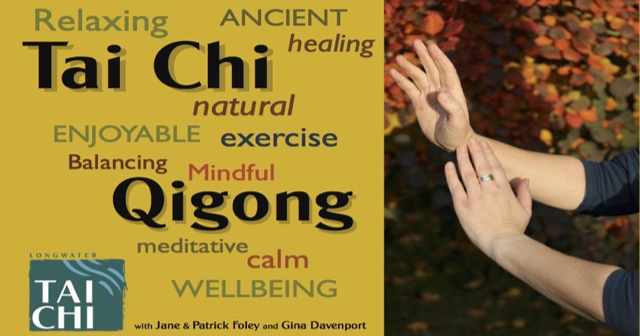Good breathing habits are widely considered to be essential components of health. Unfortunately, many people take shallow breaths, only using a portion of their lungs and often hold their breath when they become nervous or tense.
Breathing well is vitally important to your health. The system was taught to us by Bruce Frantzis who says that if you only ever do one thing to improve your health, learning to breathe well would be the best choice.
The basic techniques of Longevity Breathing get everything inside your body moving and in synch with the rhythm of your breathing. Diligent practice of this breathing technique cultivates good health, the ability to relax at any time and to concentrate for long periods.
Longevity Breathing:
-
Faciltates oxygen intake and balances the oxygen-carbon dioxide exchange in the body
-
Fully expels carbon dioxide
-
Retrains your nervous system to relax
-
Improves the functioning of your internal organs
-
Increases chi reserves in the body.
Longevity Breathing gets rid of carbon dioxide and increases the usable oxygen that you inhale. Even if you can inhale sufficiently to pull in enough oxygen to your system, you might not exhale deeply or long enough to get rid of all the carbon dioxide in your body. For most people, a quarter or so reserve at the bottom of the lungs is always filled with carbon dioxide.
This leaves only three quarters of the lungs free for oxygen intake on the next inhale. This causes the exhale to become even weaker, diminishing the body's ability to procure oxygen from the air.
Exhaling insufficiently:
-
Diminishes oxygen intake
-
Causes toxic waste products build up in the blood, which often results in yawning
-
Reduces mental capacities and clarity and increases stress in the body
-
Increases accumulated carbon dioxide.
Longevity Breathing helps you create and stabilize a strong, steady breathing pattern that will mitigate excessive emotional swings. It retrains your nervous system to relax and make your thoughts smoother and more comfortable. Studying your breathing patterns can make you aware of the ways your moods and emotions change.
For example, fear tends to produce erratic, strained breathing or holding of the breath without realizing it, this is part of a reaction to stress and tends to increase its severity. Shallow breathing makes people prone to lung weaknesses in the face of environmental problems, such as polluted air, and can also lead to depression.
According to Traditional Chinese Medicine, the ability of your breathing to improve the functioning of your internal organs--liver, kidneys, heart, spleen and lungs--is as valuable as increasing oxygen intake. Longevity Breathing methods transfer the pressure from air coming into the lungs to the internal organs, especially the heart. This provides a gentle yet firm massage for the organs while increasing blood and chi flow that helps to optimize their natural range of movement.
When the range of motion of your internal organs diminishes, blood flow to your internal organs also diminishes, blocking the smooth flow of energy. Other effects include the gradual shortening of your ligaments and restricted movement of your organs. Bodily functions will gradually weaken and disease will eventually strike
Breathing well throughout your day is the best prevention!







